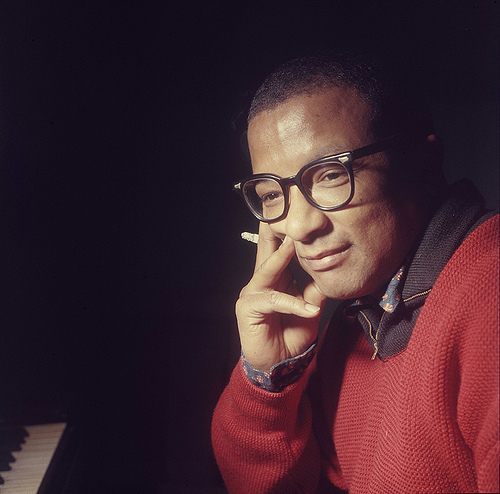 |
| Django Reinhardt |
At the Michigan Theater Friday night, the Hot Club of San Francisco and the Hot Club of Detroit belatedly celebrated your 100th birthday. The Gypsy jazz movement you co-founded with your pal violinist Stephane Grappelli in 1934 still thrives. There's Gypsy jazz bands spread throughout the United States and overseas as well. Django, I’m happy to announce that your musical legacy remains intact. I want to share some highlights from your 100th birthday bash. I was confident the Hot Club of San Francisco and the Hot Club of Detroit would put on a wonderful show. Neither band disappointed.
The HCSF took the stage first. The quintet started with one of your 12 bar blues followed by two of your medium tempo tunes. Rhythm guitarist and vocalist Isabelle Fontaine sang in French, and while her hubby guitarist Jeff Magidson soloed, she swayed her hips as if seduced by every note Magidson played. The HCSF were loyal to the tenets of Gypsy swing. After they performed the three compositions, the Hot Club of Detroit joined the party.
The HCD opened with the burner “Heavy Artilleries/It’s About That Time”, the title cut from their recent album. When the band finished, I overheard a woman asked her date “How do you follow up that”? Well, Django, the HCD followed up with another hot number “Nostalgia in Time Square”, and saxophonist Carl Cafagna wolfed down the changes like the last supper. The HCD is guitarist Evan Perri’s brainchild. Perri is a fair and undemanding boss, and he gives his band-mates freedom and encouragement to flex their creative will, but Cafagna is clearly the franchise player. I doubt if the HCD would be the same swing conscious group without him. Cafagna’s contribution is that vital.
As a surprise, the HCSF showed two silent films. Paul Mehling, the leader of the HCSF explained Gypsy bands traditionally showed films when they performed. The HCSF accompanied “It’s a Bird” by Harold Muller and “The Land Beyond the Sunset” by Harold M. Shaw. The audience enjoyed Muller’s work the most. The music Mehling scored for Shaw’s film meshed well. Whereas, the music the quintet performed during Muller’s film was mismatch. Both bands were sensational. The encores were unnecessary and over the top. Mehling and Perri never allowed the performance to become a battle. The even was about celebrating your legacy.





